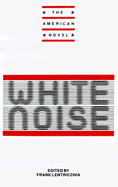3 - “Adolf, We Hardly Knew You”
Published online by Cambridge University Press: 05 June 2012
Summary
after the plastic surgery, the
guitar lessons, the war, hitler
learns he can sing, high atop his
pink palace, he wonders why he didn't
think of this before, his fans are
better, his outfits brighter, and the
drugs are the best he's ever had. people
love him. he still can't act, but hell,
now he gets paid for walking funny.
– Keith AlleyAdolf hitler is no laughing matter. In a world where truth is now generally thought to be relative. Hitler often seems to stand as the lone remaining absolute: the incarnation of absolute evil. Even the most broad-minded tolerance for cultural diversity seems to stop short of embracing Nazi culture as a legitimate human possibility. Hitler has become an argument stopper: “You say all value is subjective: Does that mean we have no objective grounds for condemning what Hitler did at Auschwitz and Buchenwald?” In short, people who can agree on nothing else will join together in rejecting Hitler and all he stood for. To defend or admire Hitler is to risk removing oneself from the acceptable range of rational discourse and branding oneself as a dangerous extremist or an outright kook.
Don DeLillo is a disturbing writer, and nothing shows more clearly how disturbing he can be than his unconventional treatment of Hitler in White Noise. The novel centers on Jack Gladney, a professor who specializes in Hitler studies at a small college.
- Type
- Chapter
- Information
- New Essays on White Noise , pp. 39 - 62Publisher: Cambridge University PressPrint publication year: 1991
- 6
- Cited by



